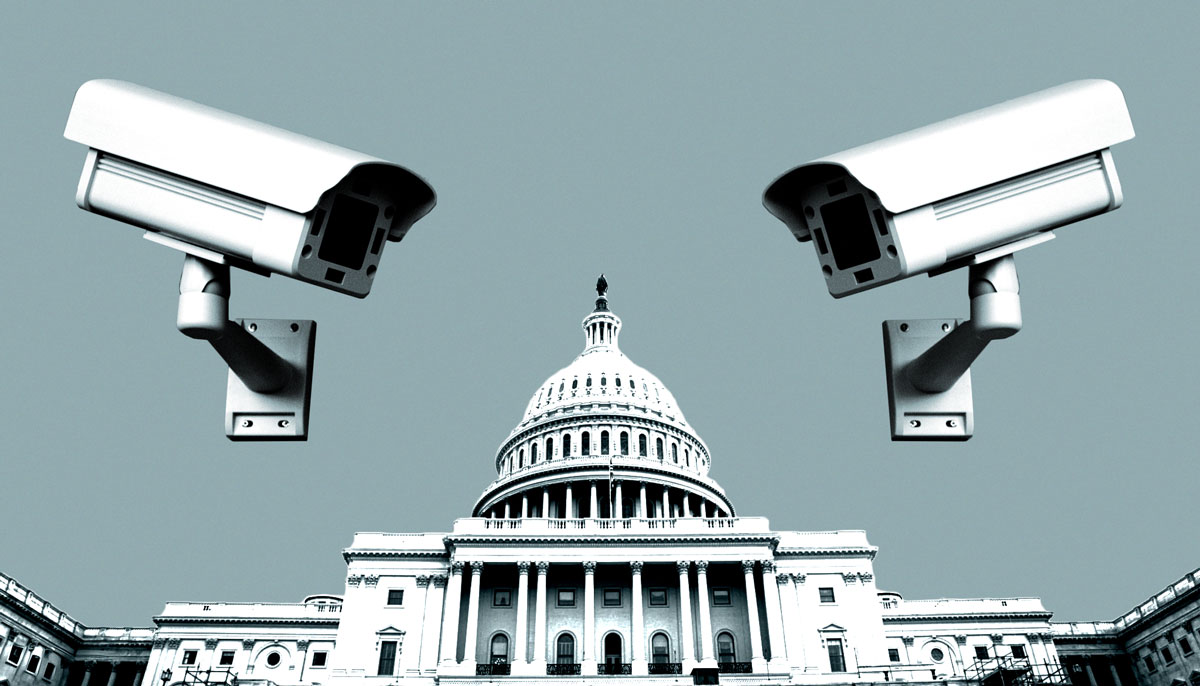Despite latest wave of mass shootings, Senate Democrats struggle to bring attention to gun control
Vaughn Bryant, a former NFL football player, says he was ready — quite ready, in fact. Bryant told CBS News he's watched Sunday morning political talk shows religiously for decades. He knows how politicians argue and speak. He knew how to make a case to Congress.
Bryant carefully reviewed his written remarks and testimony the night before, and he entered the big hearing room on the second floor of the Hart Senate Office Building with confidence, wearing the perfect necktie for the occasion. It was symmetrically patterned with equal parts blue and red.
He has dedicated his post-athletic career to combating gun violence in high-crime areas of Chicago. Bryant, executive director of the city's Metropolitan Peace Initiative, was invited to be a witness this week at a Senate Judiciary Committee hearing on gun violence convened by one of his home-state Democratic senators.
He told lawmakers, "As you consider ways the federal government can address issues of gun violence, sustainable federal funding that brings violence prevention to scale must be part of the solution." Bryant felt the conversation and questions were strong.
But the room wasn't filled to capacity when he testified, and the media coverage was scant. Bryant says he wonders how many people heard the message.
Nursing a narrow majority into a challenging election year, Democrats in the Senate have made several attempts over the past month to inject some urgency into the gun control fight.
They held the Judiciary Committee hearing that featured Bryant and other witnesses. Other Democrats have proposed a range of new legislation, on combating ghost guns, tightening regulations on semiautomatics and providing more federal assistance to gun violence victims.
Last week, Senate Democratic leaders tried to draw attention to gun control with a series of doomed parliamentary moves.
They acknowledge they're fighting an uphill battle. International crises, wars, a standoff over Ukraine aid, a looming government shutdown deadline, a historic U.S. House expulsion and — perhaps most perniciously — pessimism about the prospects of legislation are suffocating some of their efforts. There's little political oxygen and cable TV coverage, even as mass shootings continue unimpeded.
What's more, some of the key Republicans who helped secure passage of a gun control bill in 2022 aren't inclined to revisit the issue right now.
Senate Majority Leader Chuck Schumer, a New York Democrat, announced a fruitless effort to pass an assault weapons ban through the Senate by unanimous consent on Wednesday. As expected, the proposal was immediately spiked by Republicans. Sen. John Barrasso, Republican of Wyoming, blasted the proposal as an overreach that victimizes "law-abiding" gun owners.
Later on Wednesday, Sen. Chris Murphy, Democrat of Connecticut, whose state was devastated by the Sandy Hook school shootings 11 years ago this month, sought to pass a background check bill by unanimous consent. This, too, was also immediately blocked by Republicans. Murphy also scheduled a press event with Connecticut members of Congress on Thursday, to talk about gun violence near the 11-year mark since the Sandy Hook tragedy.
"There are things that are impossible, until the moment they're not," Sen. Martin Heinrich, Democrat of New Mexico, told CBS News. Heinrich introduced legislation to regulate some semiautomatic weapons and large-capacity magazines. He held a press conference to gin up attention about his legislation Tuesday.
Flanked by orange signs with "GOSAFE ACT" in large letters, Heinrich announced his proposal in a 30-minute event in a first-floor meeting room in the Capitol. He told the group of spectators and TV cameras that a suspect in a deadly May 2023 shooting in Farmington, New Mexico, was carrying an AR-15 that would have been regulated by his legislation.
"The number of Americans killed in mass shootings is horrific," Heinrich said. "And we can't bring those Americans back."
As he stood near an elevator bank off the Senate floor, Heinrich told CBS News he remains optimistic that some gun control measures could be seriously considered before the 2024 election. He says he's talked with and "shared a draft" of his legislation with Senate Republicans. But Heinrich was quick to acknowledge that "we haven't landed anyone yet."
The pessimism that pervades gun control legislation discussions is unsurprising. The Congress is under divided control. The Republican-led House hasn't used its agenda-setting power to raise the issue, stage hearings on gun control proposals and is unlikely — to put it mildly — to hold votes on the gun control priorities of Democrats.
Gun safety organizations have championed Heinrich's proposal. In a statement, the head of Moms Demand Action said, "America's gun violence epidemic is a public health crisis that claims the lives of 120 Americans and wounds over 200 more every day. Access to assault weapons only makes this crisis more lethal."
But initial prospects for the bill appear dim.
One of the Republicans who helped negotiate a bipartisan gun bill last year is waving off the prospects of any new gun control initiatives. Sen. John Cornyn, Republican of Texas, told CBS News, "This is just an issue [Democrats] can't let go of, because they've got a certain part of their base who don't believe in the 2nd Amendment."
The attempts by Democrats on Wednesday to pass sweeping new laws by unanimous consent in the Senate, which were destined to fail, risk further inflaming the issue with partisan rancor. In a floor speech, Sen. John Barrasso, Republican of Wyoming, said of the proposed assault weapons ban, "It's about trying to label responsible gun owners as criminals."
"None of this solves the mental health crisis in our country," he added. "The focus should be on mental health."
Sen. John Fetterman, a Pennsylvania Democrat, told CBS News, "It's a very complex and divided situation. Right now, with everything else that we're into, it just hasn't been the priority."
"When we have things like Ukraine, we have Israel, and the threat of shutting the government down," Fetterman said, "we don't have the ability to address this issue, which is a very critical issue."
Bryant, who went home to Chicago after testifying at last week's Senate committee hearing, did not leave Washington disenchanted by what he heard from senators.
"Mental health and intervening with citizens in crisis is an area of agreement," he said. "We agree that poverty is a root cause of community violence, and we agree that we have time to enable returning citizens to successfully transition back into society in a productive and meaningful way. There's a foundation of agreement."




